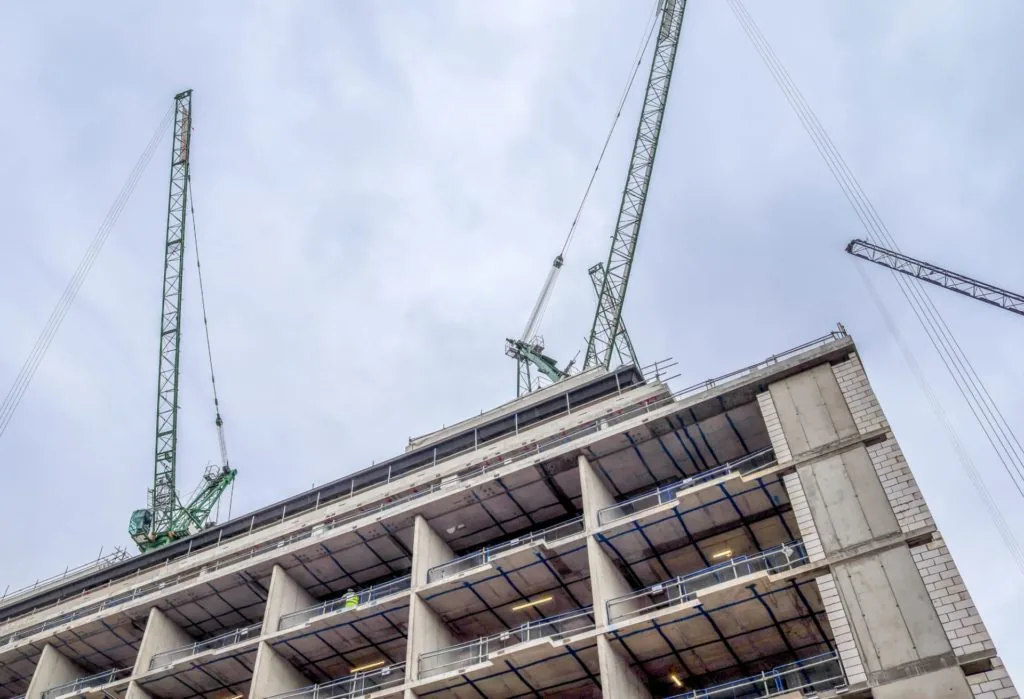
Can a collateral warranty be a ‘construction contract’? The Supreme Court decides in Abbey Healthcare v Augusta

By Abigail Philpotts, Ffion Davies
24 Jul 2024 | 4 minute read
In a recent judgment handed down in July 2024, the Supreme Court was asked to determine when a collateral warranty is capable of being a 'construction contract' for the purposes of section 104 of the Housing Grants, Construction and Regeneration Act 1996 (the Construction Act).
The distinction is important because a 'construction contract' under the Construction Act contains an implied statutory right to refer a dispute to adjudication under section 108.
Adjudication is a fast-track dispute resolution procedure which can often be a quicker and more cost-effective method of resolving disputes than by litigating in the courts.
The decision has been eagerly awaited and is important for two main reasons:
- It reaffirms the traditional position pre-Parkwood that the Construction Act does not generally apply to collateral warranties; however,
- It notes that a collateral warranty may (exceptionally) be construed as a 'construction contract' where it creates separate and distinct obligations from those under the main building contract.
The facts
Toppan was the freehold owner of a luxury care home in London built by Augusta (formerly Simply Construct), which completed in 2016. Toppan let the facility to the tenant operator, Abbey Healthcare (Abbey). Alleged fire safety defects were identified in 2018 requiring remediation which Augusta did not carry out. Toppan therefore engaged a third-party contractor to carry out the remedial works, the cost of which was borne by Abbey.
To establish a contractual right for Abbey to sue Augusta, Toppan exercised its right to require Augusta to execute a collateral warranty in favour of Abbey four years after the works had completed. Abbey brought adjudication proceedings against Augusta for the remedial works and was successful but Augusta failed to pay the adjudication award. Abbey brought enforcement proceedings in the High Court which Augusta contested on the basis that the collateral warranty was not a 'construction contract', the adjudicator lacked jurisdiction and the award should therefore not be enforced.
Progress through the courts
In 2021 the High Court decided that the collateral warranty was not a 'construction contract' on the basis that it was issued after completion of the works and the obligation was retrospective warranting works already completed. It was considered not to fulfil the definition in the Construction Act as it was not an agreement for "the carrying out of construction operations". The adjudicator's decision was therefore unenforceable, and the claimants appealed.
On hearing the case the Court of Appeal took a different approach: it found that the collateral warranty was capable of being construed as a 'construction contract'.
The warranty included a term that Augusta "has performed and will continue to perform diligently its obligations" under the building contract and that it "has exercised and will continue to exercise" reasonable skill, care and diligence in carrying out and completing the works.
Relying on the earlier decision in Parkwood Leisure v Laing O'Rourke [2013], the majority considered that this meant the contractor had promised both retrospectively (that it had performed) and prospectively (that it would perform) its obligations under the main building contract so the date of execution was irrelevant for the purposes of deciding whether or not it was a 'construction contract'.
However, the court recognised in allowing the appeal that not all collateral warranties would automatically be 'construction contracts'.
Supreme Court appeal
The case was appealed by Augusta to the Supreme Court who disagreed with the Court of Appeal's analysis: they considered that too much weight had been placed on a broad construction of section 104.
The Supreme Court decided that collateral warranties were not intended to fall within the scope of the Construction Act observing that the "main object or purpose of such a warranty is to afford a right of action in respect of defectively carried out construction work, not the carrying out of such work". In this case, the promise to carry out future works was entirely derivative. Merely warranting the performance of obligations already owed to the employer under the building contract is not sufficient to satisfy the Construction Act requirements.
Accordingly, collateral warranties will not usually be 'construction contracts' as they do not create separate obligations but instead reflect those set out under the underlying building contract. Although a collateral warranty is capable of being a construction contract, in order to be construed as an agreement "for… the carrying out of construction operations", a warranty would need to create separate and distinct obligations from those under the building contract.
Key takeaways
- Parties who are granted rights under a collateral warranty should be aware that the additional provisions implied by the Construction Act including the right to adjudicate will not usually apply.
- Consider carefully to what extent collateral warranties with step in rights which effectively allow a beneficiary to regulate construction operations might be considered a 'construction contract'.
- Parties should include an express right to adjudicate if they want the procedure to apply but beneficiaries should consider the type of potential disputes arising out of a collateral warranty and decide if adjudication is the most appropriate form of dispute resolution mechanism.
- The decision avoids the inadvertent creation of a two-tier system of collateral warranties based on their execution date and will prevent the employment of strategies around the timing of signature. Instead the focus is on the statutory purpose of the relevant provisions of the Construction Act.
Our work
At Foot Anstey, our experienced construction disputes team are on hand to assist with any queries you may have around adjudication or litigation proceedings. If you require any assistance at the drafting of a construction contract or collateral warranty, please do get in touch with our colleagues.












